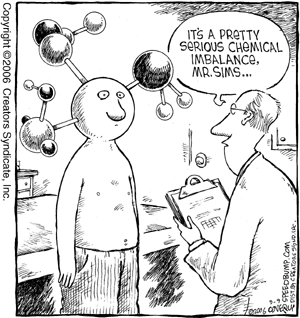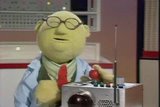I have been asked about the “Brooker Limit”.
In the early 1990's I was blessed to work in a relatively large chemistry department as a tenure-track assistant professor. I had been hired (and it was made abundantly clear in my job interview) to do research. It was made clear in my tenure review assessments as well that I was expected to focus on research and publication. Therefore, my natural inclinations towards discussions about teaching were mostly limited to content issues. There was this one conversation that I had though ...
Murray Brooker was a blocky, gruff senior faculty member who taught and did research in physical chemistry (vibrational spectroscopy). He had a heart for helping the high school chemistry teachers in the province and did some good work in the area. He had taught introductory chemistry for a few years and we happened to have a conversation about teaching first year chemistry.
After a few comments Murray reflectively noted "You know, when you start out teaching first year chemistry you tend to make mistakes and repeat yourself. But, if you don't change anything, each year you get more and more efficient at delivering the content. You get to the point where you are not making any mistakes and you are covering the maximum content possible. It makes you wonder if that is such a good thing. Perhaps we should be changing the content and textbooks regularly so that the faculty will be better at teaching and worse at delivering chemistry." (paraphrase)
I have since used the expression "Brooker Limit" to describe my courses where I have delivered the same course year after year so that I can simply “pull the string” and the content will come out. The negative power of the Brooker Limit is that it resists change because any change will reduce the efficiency of content delivery. I have come to the realization that most textbooks are written by professors at the Brooker Limit for other professors at the Brooker Limit. This has resulted in the trend of identical first year chemistry textbooks of near encyclopedic content and size. I can believe that there are professors out there that can
deliver the content of these texts but I defy them to
teach the content of these texts.








